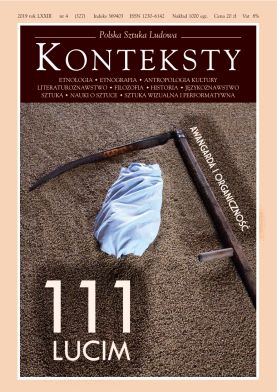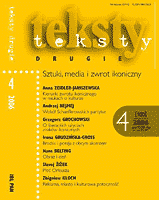


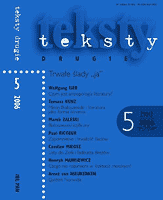

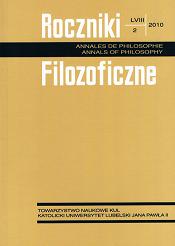
Keywords: Aristotle; Alexander of Aphrodisias; the soul; De anima
More...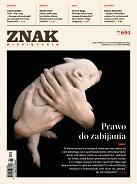
Keywords: Artur Madaliński; recenzja; review; Alice Munro
More...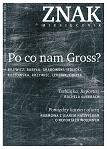
Keywords: Wybór źródeł do nauczania o zagładzie Żydów na okupowanych ziemiach polskich; Jews; Żydzi; Holokaust; Holocaust,
More...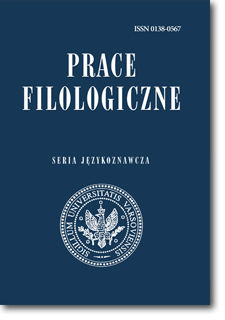
Keywords: skanowanie; tekst; korpus; wyszukiwarka; kodowanie; scanning; text; corpus; search tool; coding
A modification of the Poliqarp corpus search tool is described, which is oriented towards searching scanned texts with dirty OCR (i.e. the fully automatic Optical Character Recognition without any proofreading). This search tool operates since December 2009 and is available at http://wbl.klf.uw.edu.pl/. The twolevel regular expressions, which can be used in the queries, allow – at least in principle – to circumvent the OCR errors. The crucial property of the search engine is its ability to highlight the hits on the original scans stored in the DjVu format. Although the feature is not original, as it has been used for the first time for the Century Dictionary and later for Jamieson’s Etymological Dictionary of the Scottish Language, it is substantially augmented by allowing the socalled graphical concordances and providing a convenient way to bookmark the hits. Our system handles now four dictionaries, with the total size of over 40,000 pages. It is expected that in the near future other texts will be added to the system.
More...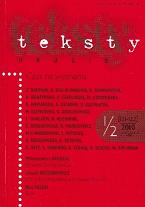
Keywords: Literature; Reading practices.
A reply to the questionnaire on the occasion of the 20th anniversary of Teksty Drugie: my personal views on literature, literary studies and other issues of consequence. On the intense experience of reading: amateur and professional; lonely and collective; initial and repeated; with a pencil in the reader’s hand and headphones on their ears.
More...
Keywords: Literature; History of Polish Literary Studies 20-21 c.; "Teksty Drugie"; Urban studies
A reply to the questionnaire on the occasion of the 20th anniversary of Teksty Drugie: my personal views on literature, literary studies and other issues of consequence. Relations between the city and art as sequences of metonymic operations that derive from real dependencies that are commonly experienceable – in other words, on the effects of a community of experience within Teksty Drugie.
More...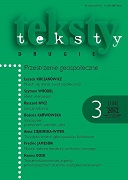
Keywords: Saartjie Baartman; Hottentot Venus; Postcolonialism
The article deals with the post-life of the remnants of Saartjie Baartman and with the use made of her biography. The history of a woman from Khoikhoi people died in Paris in 1815, known in Europe as the Hottentot Venus has been able to evoke various narratives throughout nearly two centuries. Her body and biography have served as an evidence to support scientific thesis, a matter allowing to shape a theory; it was also used to support various ideological regimes. It is an example of multidimensional colonisation of meanings, it also points to the need for critical reflection born in this process.
More...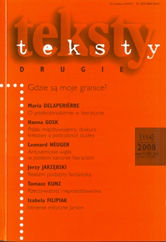
Bibliography Teksty Drugie 2001-2007
More...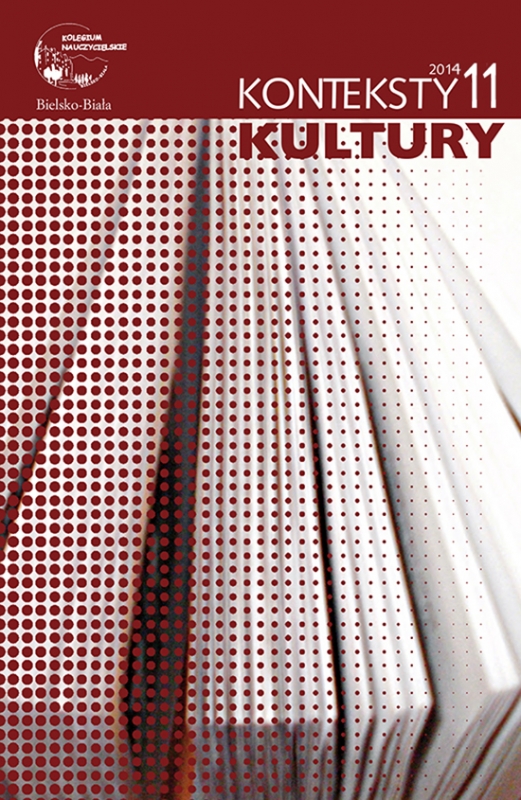
Keywords: tekst; reklama; horyzont konotacyjny; wizualizacja; kultura wizualna; retoryka; kampania reklamowa
The present article deals with the issue of text and textuality in such „unstable” and not-so-easy-to-grasp forms as advertising campaigns. The main contention of the article is that we need to reformulate the classical concept of text based on verbal transmission, and enhance it by taking into account visual elements as well as such formally indefinite phenomena as presuppositions and inferences. This is also implied by the necessity to reformulate the concept of intention and by the assumption that the text is always „text for a receiver”, or something that is contituted by the latter’s intention.
More...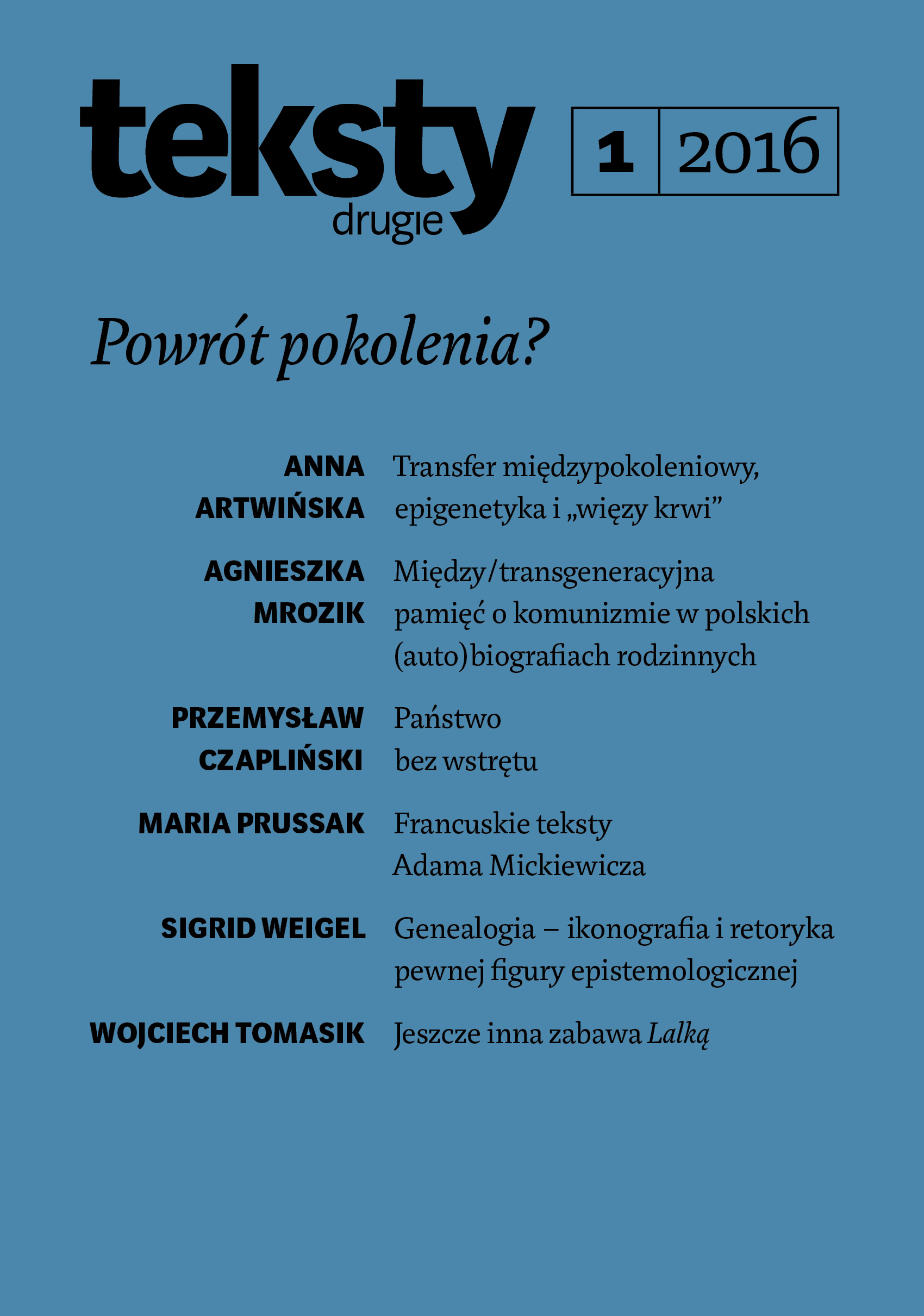
Keywords: foreign language; French drama; Pushkin’s obituary; distance; pressure
Mickiewicz wrote in French for many different reasons – to fulfil his journalistic obligations and to deliver commissioned texts, but also to participate in the literary scene, which he was part of during his stays in Russia and France. The French language gave him a chance to try his hand in genres that he did not use in Polish, and to tackle subjects that Polish audiences might not accept. But most importantly, writing in French allowed him to take on a different perspective, a certain distance from where he could grasp difficult problems without emotional engagement.
More...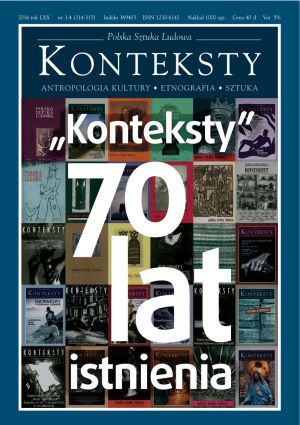
Keywords: anthropology; religion; philosophy; eschatology
The objective of this study is to indicate the astoundingly topical nature of the evangelical eschatological paradigm (presented in the introduction) by resorting to examples of selected cultural texts. Despite the mass-scale secularisation of our civilisation the process of experiencing such texts is mystical and testifies to sui generis epiphanies uncoordinated with traditional orthodoxy and connected not with doctrine but with the Man Jesus, whose (second) coming grants them the character of an ultimate event. The reflections concern the cultural phenomenon of experiencing the insufficiencies of Tradition, inspired by the theme of the Fifth Anthropological Symposium held in Zakopane in 2015. Selected texts served an analysis of the antinomies of nostalgia and dialectics as well as classical decadence (e.g. Baudelaire’s Le voyage) and mysticism, which reveals its features as “empty ideality” (according to the interpretation by H. Friedrich). The decline of history is illustrated by P. Verlaine (Decadence) and A. Blok (The Scythians). These experiences lead towards a vision of the revolution (in the finale of The Drunken Boat by A. Rimbaud), on the one hand, and towards an astounding revelation of Jesus descending into Hell, an unorthodox experience of the Gospel and Parousia (an encounter with the Bridegroom at the bottom of Hell’s pit), on the other hand. A similarity, difficult to explain, of the sceneries of those epiphanies in Rimbaud’s A Season in Hell and Blok’s The Twelve is indicated. Eschatological epiphanies of Jesus are presented in interpretations by Russian authors: M. Gogol, V. Solovyov, F. Dostoevsky, M. Bulgakov, and B. Pasternak. Emphasis is placed on the important contribution made by the forgotten work by Y. Golosovker: Запись неистребимая / Сожженный роман (1928/1991). All these epiphanies are also analysed from the viewpoint of the idea/figure of the “deceiver” and pseudo-prophet - the Antichrist, of crucial significance in the New Testament.
More...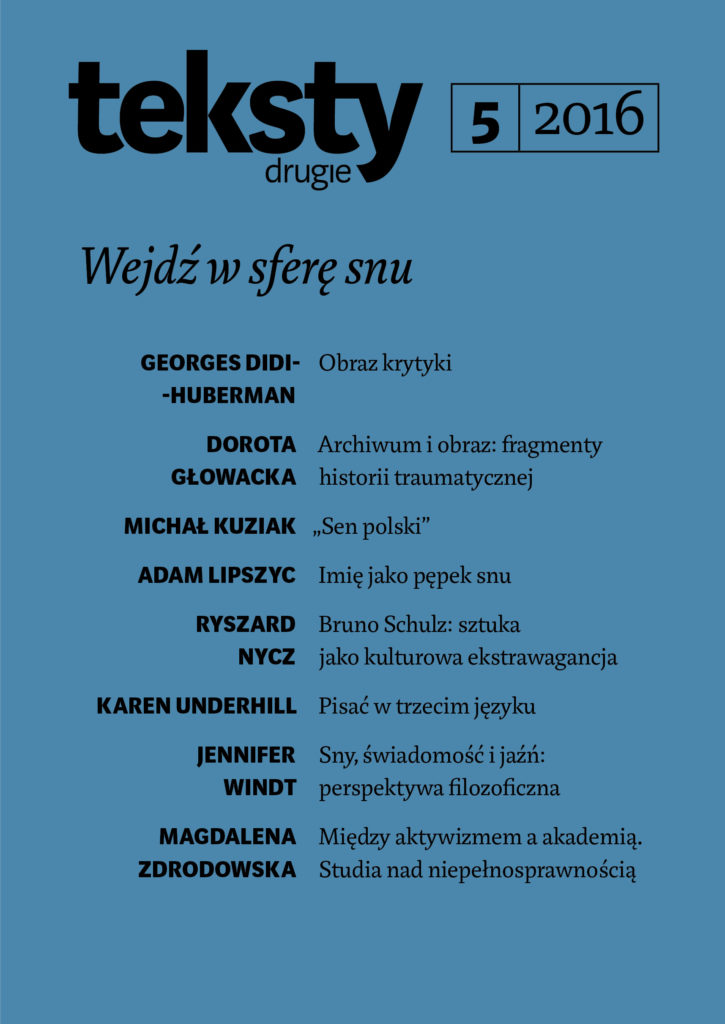
Keywords: literary dream; real dream; text; stylistic analyses; theory of dreams
Autor artykułu stawia tezę, że nie można wyznaczyć granicy między literacką a nieliteracką relacją snu. Ponieważ nigdy nie mamy dostępu do snu „samego w sobie” i zawsze dysponujemy wyłącznie relacjami-tekstami, przeto różnica między snem literackim a snem rzeczywistym musi ulec zatarciu. Wynika stąd, że sny opisane w literaturze zachowują wszystkie właściwości tekstu literackiego i wszystkie właściwości snu, mogą więc (i powinny) być badane interdyscyplinarnie, również przy użyciu metod stosowanych w objaśnianiu snów rzeczywistych. Tezę swoją opiera autor na rozważaniach teoretycznych, nawiązujących do najnowszych ustaleń w dziedzinie dream studies, oraz na analizach stylistycznych wielorakich, literackich i nieliterackich relacji snów.
More...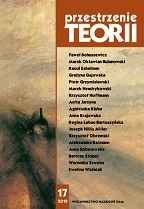
Keywords: theory; literature; "turns"; "Teksty Drugie"
After 20 years of appearance in print of “Teksty Drugie” magazine, its chief editor, Ryszard Nycz, has prepared some general questions and refers them to the closest collaborators. Many of them are poststructuralistic, but not only: the text of Ewa Domańska consists of the project of return of natural sciences into the core of humanities, and Danuta Ulicka’s text The Archival Turn (As I See It) announces the necessity of a turn to philology – not its 16th or 19th century versions, but postmodern philology.
More...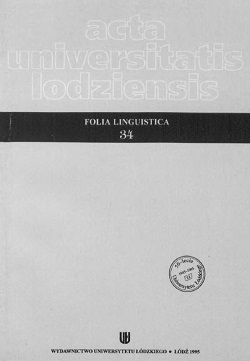
Short advertisement films occupy a large part (especially around the peak viewing hours) of everyday programmes of the Polish stale television. Even though it is possible to imagine an advertisement film employing only extralinguistic means of communication, the advertisements in general, have so far been using written and spoken texts. The basic function of such a text and of the whole film is to encourage the viewers to buy the advertised product. However, independently of the sender’s intention, both the film and its text may have other functions' The same text repeated many times can be stored in memory, and then called to mind, at least in fragments, just like certain belles-lettres expressions. As such, it can become an inviting and intrusive language pattern. The article concentrates on the most important, in the author’s view, features of television texts, their contents, composition, and syntax. It also justifies the need for a more detailed analysis of such texts.
More...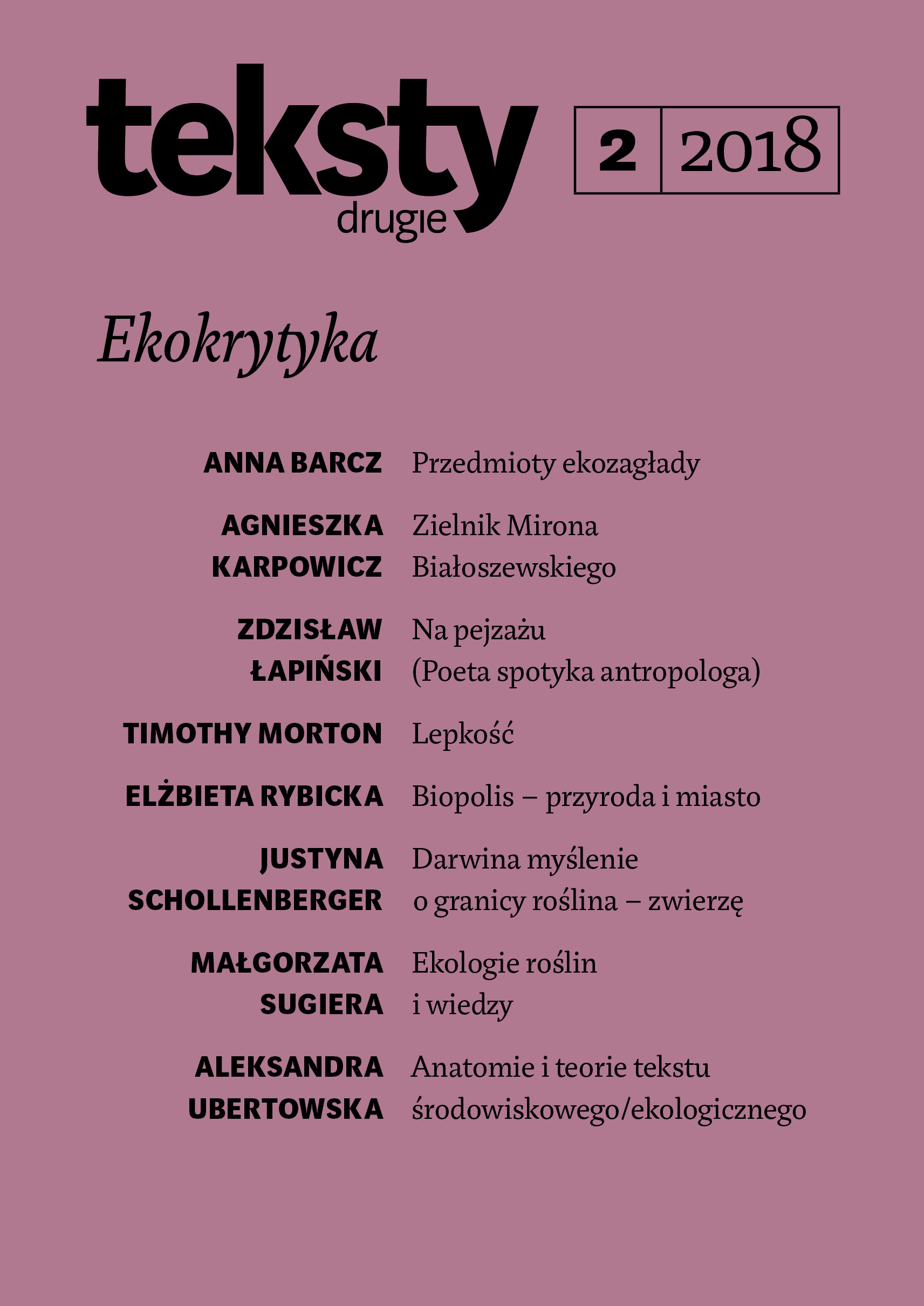
Keywords: Pesantry; rural theme; Teksty Drugie; Second Texts;
Z wielkim zainteresowaniem przeczytałem artykuły zamieszczone w nr 6 „Tekstów Drugich” z 2017 roku, które są poświęcone tematowi chłopskości. Ponieważ z mym śp. Ojcem, Stefanem Lichańskim, zajmowaliśmy się tymi problemami, pragnę podzielić się kilkoma uwagami. Zwłaszcza że, z pewną przykrością, zauważyłem w kilku artykułach dziwne opustki bibliograficzne – kompletnie dla mnie niezrozumiałe. […]
More...